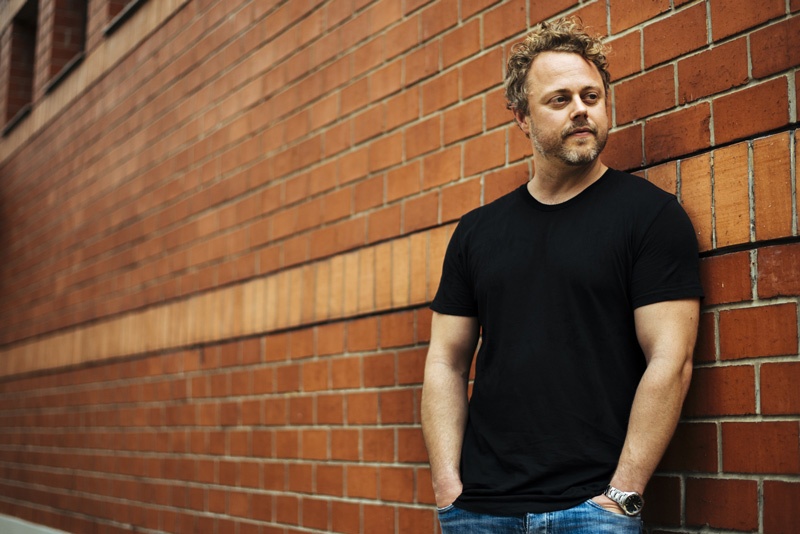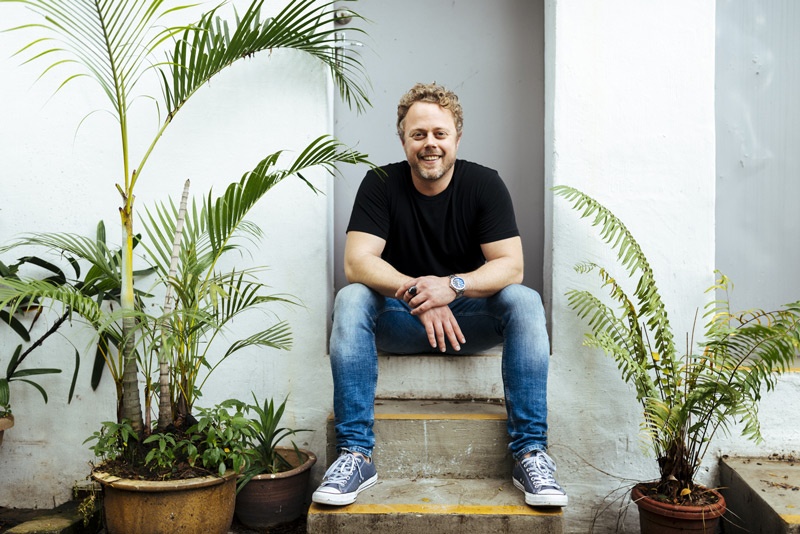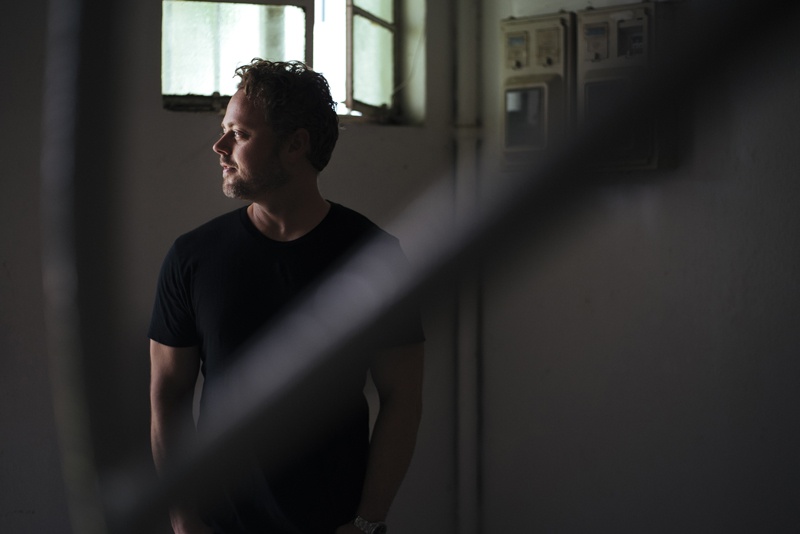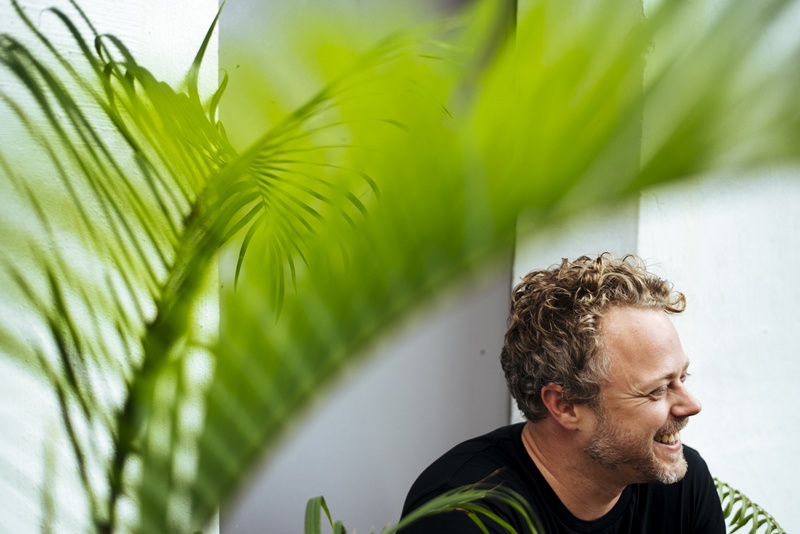Justin Dry: Wine's Next Big Yield
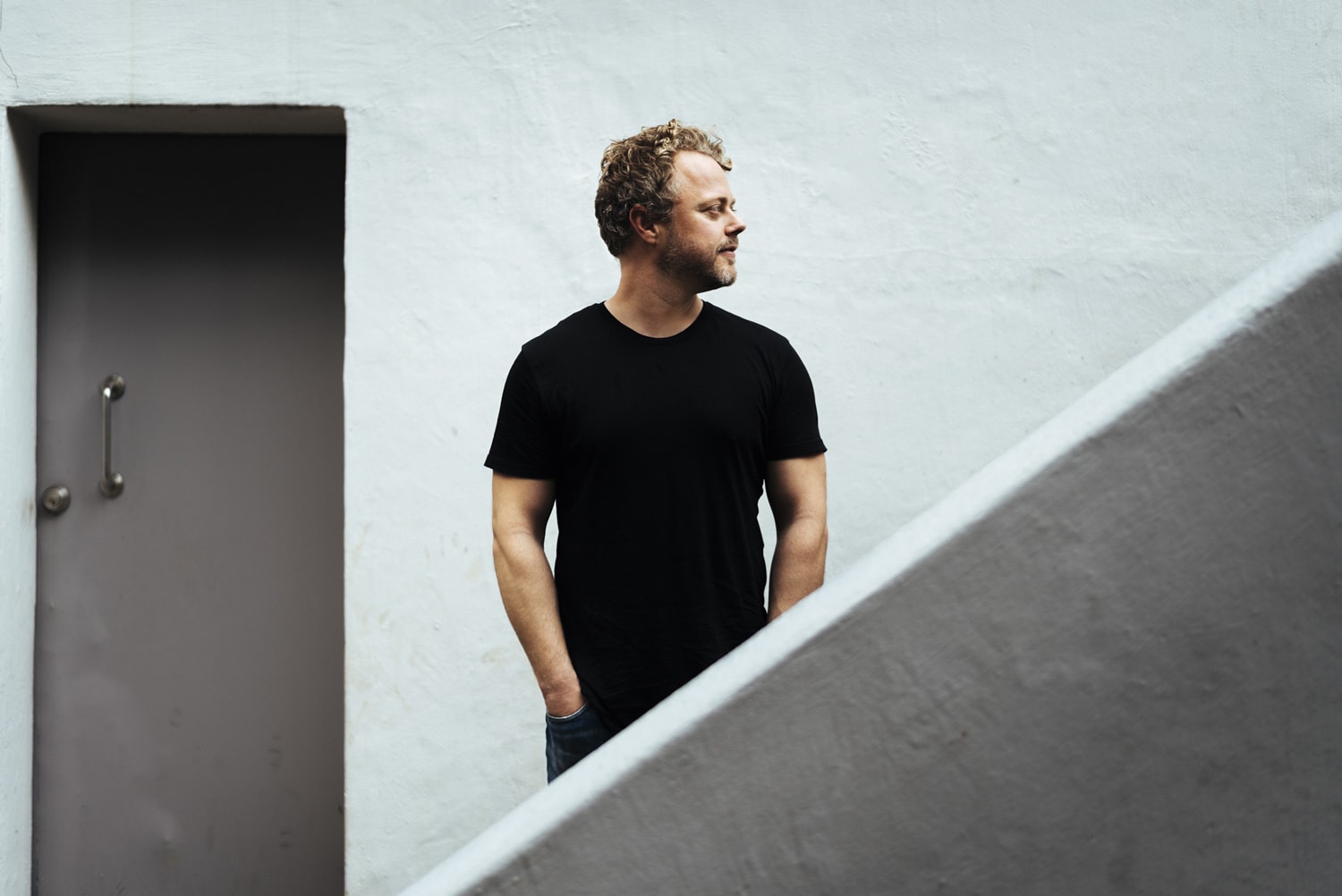
Justin Dry is confident of his success in Singapore. The tow-headed 39-year-old Australian shares with me, “Someone told me that in Singapore, what you need, like food and water, is cheap. But what you want, like cars and wine, is expensive. Wine prices in Singapore are scary—and we’ve hung out enough here to know that there is a real opportunity. You don’t need to pay ridiculous prices for wine.” Justin’s online wine retail business, Vinomofo, which he started with his brother-in-law, Andre Eikmeier in 2011, sold out within 2 weeks of its December 2016 launch in Singapore. In the first 24 hours, they achieved $120,000 in sales and secured over 5,000 sign-ups. What sets the company apart from the rest is their irreverent and cheeky approach to a subject more commonly associated with fusty formality and decorum, drawing buyers in with approachable prices on premium, boutique production wines sourced from around the world. “What we want is for everyone to be able to experience what good wine is. Being passionate about wine doesn’t mean you have to be a wanker about it. We want to be real and talk real: welcome people into this world that we adore, without any barriers,” he says with down-to-earth charm. Vinomofo raised AUD25million in funding from Blue Sky Ventures in 2016, and beyond its recent expansion overseas into New Zealand and Singapore, the business has set its sights on the rest of Asia, with Hong Kong and China next. Not content with Vinomofo’s 500,000-strong and growing membership in Australia alone, Justin is aiming for a global audience. “We want a million "mofos" around the world—active "mofos" who are buying and being a part of the community—a tribe of passionate people who want to be a part of something special.” Although Vinomofo has a certain je ne sais quoi that appeals to the millennial crowd, Justin believes it is more of an attitude than an age thing. “Andre and I never bought into the hype. We just wanted to be ourselves. Some of our members are in their sixties and seventies, and they have the same great attitude towards wine, food and life.” It’s been close to a lifetime love affair with wine for Justin, whose taste for the drink first fermented as a young teenager, in regular blind tasting sessions with his uncle, noted viticulturist, Peter Dry. Now, this indefatigable entrepreneur who made Australia’s Business Review Weekly’s Young Rich List last year, has been through the ‘crush and press’ of several unsuccessful ventures into the world of wine. Yet much like his favourite age-worthy Piedmont Barolo, he’s only just coming into his own after being in business for 10 years. Justin’s light and easy-going first impression belies a robust spirit. This bold trailblazer is unafraid to talk about his greatest fears, toughest moments and learning to stop and smell the roses.
TEO REN FENG: You came up with the idea for Qwoff, the precursor to Vinomofo, on a 6-month long trip to South America in 2007?
JUSTIN DRY: Yes. I’d just broken up with a long-term girlfriend, sold off businesses and the trip was an escape to travel and figure out what I was going to do next. They’ve got beautiful wines in Argentina and Chile, and I was surrounded by lots of great and cheap Argentinian Malbecs and Chilean Cabernets, when I met some American tourists who were keeping in touch through Facebook. This was right before Facebook became a big thing, and I thought it would be really cool to somehow combine social networking and wine into a business idea. I thought about the idea on 24-hour long bus rides across South America—since I couldn’t afford to fly—which was a beautiful experience. That was how Qwoff came about.
REN FENG: What was the motivation behind Qwoff?
JUSTIN: I wanted to build a new community for wine and for younger people who were kind of intimidated by the stuffy bowties and bullshit around the drink. Although I grew up with wine, studied the subject at university, and worked in the industry, I would go into these really cool wine stores and feel intimidated and nervous. Can you imagine how everyone else feels? It still happens today. When you talk to people and ask if they like wine, they’ll always tell you, “Oh, I like wine, but I don’t know anything about it. But I love it.” That’s what everyone says! It shouldn’t be that intimidating but it is, so our mission is to open wine up to people. Qwoff, and every business of ours since then, is based on the philosophy that wine should be more accessible.
REN FENG: You’ve spoken about how some of your business ideas, like Qwoff, were too early for their time, and that success is largely a matter of timing and catching the right wave.
JUSTIN: Andre had just worked on a customer review site then, so we incorporated that into Qwoff, hoping that people could speak freely about wine—allowing us to create a tribe around our business. However, it was very hard to make money, even though we built a sizeable audience of 20,000 members. At the time, Amazon reviews were just coming out and when we tried to sell our proposition to wineries, they couldn’t understand that people were speaking about their wines online. They preferred to bury their heads in the sand, and continue with traditional channels and critics. But the fact of the matter is, people talk about wine at dinner parties and among friends, and were beginning to review them for each other online. As a wine producer, you’ve got to engage that tribe.
"People make the mistake of attaching their self-worth to a business."
REN FENG: Was it difficult to accept that your idea couldn’t make you money?
JUSTIN: If you can maintain belief in yourself despite experiencing business failures, it’s a really powerful thing. People make the mistake of attaching their self-worth to a business and never give up, even if everything and everyone including customers indicate that it’s a shit idea. Splitting those two up is how you get through difficulties and persevere without losing faith in yourself. I’ve been guilty of going too long before pivoting, but this separation has enabled us to finally say, “Look, this is not working, we’ve really got to let this one go and change.” A lot of people just bury their heads in the sand, thinking “No, no, no… it’s too much of me in this,” and they’re the ones that end up going pretty “pear-shaped” in the end.
REN FENG: I understand you pivoted and changed your business ideas several times, before arriving at Vinomofo.
JUSTIN: Our second business was an online wine show called, “Road to Vino”, which was us in a combi, travelling around Australia, living in wine regions and filming our adventures as a vlog of-sorts. That wasn’t necessarily bleeding edge, but it was early for the kind of video-blogging, live social network coverage kind of thing. Andre suggested getting sponsorship, and long story short: we did 4 episodes out of Hunter Valley and released it to our audience on Qwoff, when we started getting calls from people telling us that they wanted to get behind it. All of a sudden, we were making enough money to survive, to get us where we needed to be. Our reputation, brand and audience started to grow and most importantly, it was a great excuse to pick from the who’s who in the wine space. We would hang out with them over meals, stay at their houses and sleep on their couches. Doing that allowed us to create the most amazing network of friends all over Australia. This was the reason why we were able to get their wines cheaper than anyone else when we first started out.
REN FENG: Speaking of cheap wines, how secret are your Black Market deals? Are we allowed to post pictures of your deals on social media?
JUSTIN: No, you can’t. The only reason that we are able to sell these wines at 60 to 70% off their market price, is because we’re hiding them. The producers don’t mind if these wines are purchased by wine lovers, but they don’t want the other retailers to see that, because they were getting upset by the huge disparity and called them up about it. So it is very real and we’ve had to hide the labels—though it’s 100% legitimate—and there have been blogs and entire websites created in Australia to expose the wines being sold. We try to find these people and kick them off our site.
REN FENG: Seriously?
JUSTIN: Yes. It doesn’t mean that people still don’t post online about them, but we try to find out who they are, talk to them and explain how it works, so that they don’t breach the terms of conditions of our agreement. If they do it again, then they’re out.
REN FENG: What happens if your competitors shop these deals to find out the labels?
JUSTIN: They do. And thankfully now we’ve gotten to a size where even if the big players come in, we buy more wines than anyone else. The producer can say that Vinomofo buys 3 or 4 times more than the rest, so we still get the better price. It was a bit harder at the start when we were smaller, and the producers were doing us a favour as friends. But now, it’s because we buy more.
REN FENG: What do you think were the key reasons for your early traction?
JUSTIN: I think it was because we based our business on a ground-up community, individuals whom we got to know and love, and treated them like they were part of our family. It’s a tribe, and gradually, they started telling their friends. It’s very intimate and that’s the way to build a business in any market, which is why I intend to spend a lot of time in Singapore. Now that we’re here, I want to get to know the market completely, know our tribe individually: what they want from us and why they make certain purchasing decisions. I think that’s really important, because going into a new market and throwing some money at it is not what we’re about. I don’t pretend to know Singapore, or our next market better than the locals. I want to get to know them better and become a part of the community.
REN FENG: What do you find most frustrating about entrepreneurship?
JUSTIN: I’m not sure what it’s like in Singapore, but in Australia, the perception of failure is really powerful and detrimental to the entrepreneurial spirit. There are those who disregard it, but mostly failure is regarded with such harsh… it’s looked upon as such a big thing, and there’s a stigma attached to failure. You’ve got to be really brave, stand up for yourself and not let it affect you.
REN FENG: Asian “face value” makes failure a difficult thing to deal with here in Singapore as well.
JUSTIN: Yeah, and in Australia, “tall poppy syndrome”, is the reverse of that. So if you fail, people think, “Ooh, that’s really bad.” But if you do really well and you’re not the underdog anymore, people start thinking, “He’s getting a bit full of himself now, isn’t he?” So it’s a weird kind of dynamic: if you fail, they’ll stay away from you, but if you’re doing too well, they want to cut you down. I’ve heard about the “face value” thing, and these things can be terrifying, especially if you are really attached to these ideas. I’ve learnt that you’ve got to detach yourself from caring about what people think about you—but as a human being, it’s so hard to do that. Everyone talks about it, but it’s easier said than done.
"The only way to be in the entrepreneurial space is to lead from the front, and be willing to not be liked in certain ways."
REN FENG: It sounds like an alienating experience.
JUSTIN: This isn’t specific to me, but I’ve found that entrepreneurship can be really lonely, especially if you are a single founder. And the more attention that you get as an entrepreneur and businessman, the higher the chances and likelihood of others not wanting to support you and trying to take you down. If you let that bother you, then you’re going to be in big trouble—you’ll never want to take another risk or stand out. The only way to be in the entrepreneurial space is to lead from the front, and be willing to not be liked in certain ways.
REN FENG: They say that perseverance is a key critical factor in any entrepreneur’s story. What was the lowest moment for you?
JUSTIN: The lowest moment was when we were a couple of years into Qwoff, and the business got really lean and tight. Our first year we literally made $30,000 before costs, split 2 ways. We doubled that the next year with 100% growth, but we still had no revenue. My sister and Andre had two children then, and bills were piling up. My sister would go to get groceries and the card wouldn’t work, so they’d have to put stuff back. The landlord was also pressuring us to move out, because it was difficult to pay for rent (our house doubled up as our office too). She would talk to Andre asking if things were gonna work out and he would ask for another month or two, telling her that it was all coming together. After about 2 years, she didn’t believe in it anymore. So she came to me—and my sister and I are really close—asking, “Justin, is it going to be okay soon?” And I’d say, “I think so… Just give us a bit more time”, because I couldn’t lie. We reached a point where we promised to give up and go get jobs if things didn’t turnaround within a certain timeframe, and we actually got successful job offers. However, we ended up not taking the jobs in order to keep on pursuing our dream [laughs]. But seeing my sister and her family face tremendous monetary pressure and go through an emotional rollercoaster—knowing that I was one of the causes for that, was the hardest.
REN FENG: You’ve gotten substantial financial backing from Blue Sky Ventures. So how are you keeping the “make it or die trying” spirit alive?
JUSTIN: I think it’s kind of in our DNA, to tell you the truth. It’s only recently that we’ve had more resources, but this business is built not on money, but on our connections and community. I still lead by example, and it starts from the top—if you throw cash around, then it’s the end.
"I want to be a disruptive brand forever."
REN FENG: What do you see as principal risks to your business then?
JUSTIN: What keeps me up at night? Getting big and slow, and being the disruptor that gets disrupted. We were industry disruptors, who came up in a very quick and fast way, because we did everything with speed, while still remaining super agile. I have bad dreams of Vinomofo becoming a kind of lumbering, slow-moving beast, so I’m constantly thinking about how I’d disrupt us. Hopefully, that will keep us agile and ahead. I want to be a disruptive brand forever.
REN FENG: Do you ever see yourself diversifying and going into complementary services and such?
JUSTIN: We played around with the idea a couple of years ago, but branching out into other areas would bring a whole new range of complications and considerations. Our current focus is to put all our passion and energy behind what we do brilliantly and take that to the nth degree, before looking elsewhere.
REN FENG: Do you see yourself working on Vinomofo for life?
JUSTIN: I think so—for the next 10 years at least. I don’t think past the next 10 years of my life. [laughs] Andre has children and I think he would like to see them move into the business at some point. That’s definitely the kind mindset that we have—we want to build something really amazing and special, and that doesn’t entail flaking off in 2 years.
REN FENG: Do you think that not having a fixed long-term plan and outlook, lends flexibility in managing Vinomofo?
JUSTIN: We do 5-year business plans. We start from there, work backwards to a 3-year point, then cut it down to 1, before breaking it down to monthly and weekly goals, if need be. But I’ve learnt that it doesn’t matter what you think you’ll be doing in 5 years. There’s no chance it’s going to look anything like what you think it will. [laughs] I don’t even know what country I’ll be living in next year, since I want to live in different places, experience various cultures and meet their "mofos". I don’t know if I’ll ever retire.
REN FENG: Will you cash out if someone made you an offer to buy the company?
JUSTIN: No one can afford it.
REN FENG: Do you have a figure or an idea in mind?
JUSTIN: No, definitely not. We’re not thinking of selling so we haven’t even had that conversation—I can’t imagine.
REN FENG: Any part of the early days of struggle that you miss these days?
JUSTIN: What was really beautiful and what I wish I had spent more time thinking of at the time, are the moments when you’re starting from the ground up. We’re just starting out in Singapore and we’ve got all these beautiful milestones to hit, like our first group of a hundred "mofos", or our first case sale. I think they’re very special moments, but back when Vinomofo first experienced them in Australia, I don’t think we took enough time then to appreciate the moment. We’d be setting targets, hitting them and quickly moving onto the next. I wish I could go back and have those moments again, hug everyone and really celebrate being part of something amazing. On the plane to Singapore, I was thinking of all the work we have to do here, but then decided to enjoy a couple of Singapore Slings. This time, I’m going to make the most of the experience.
****
Edited by Wy-Lene Yap
